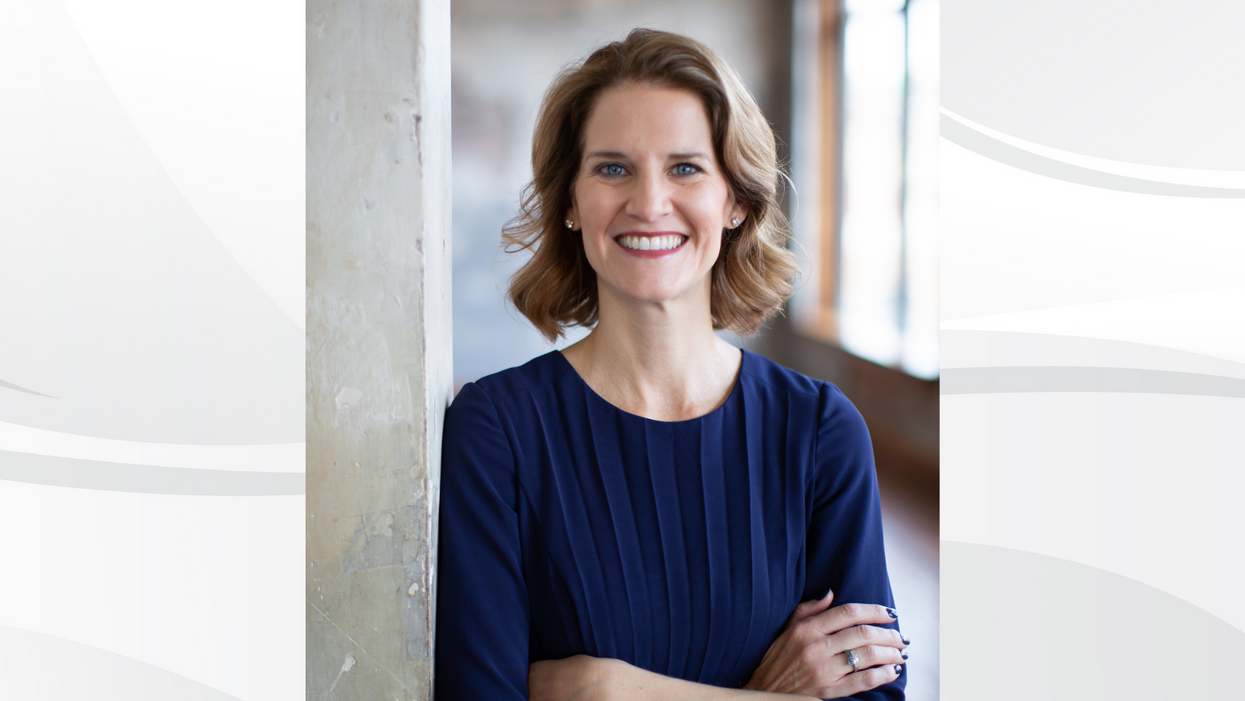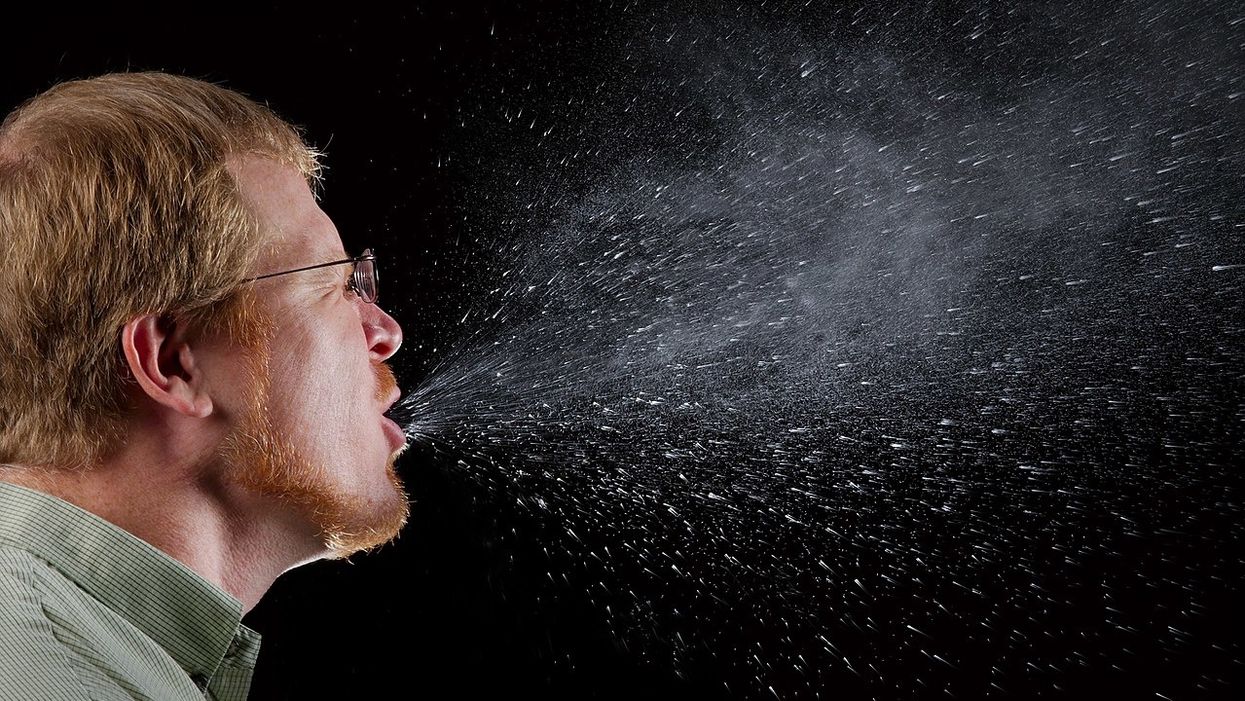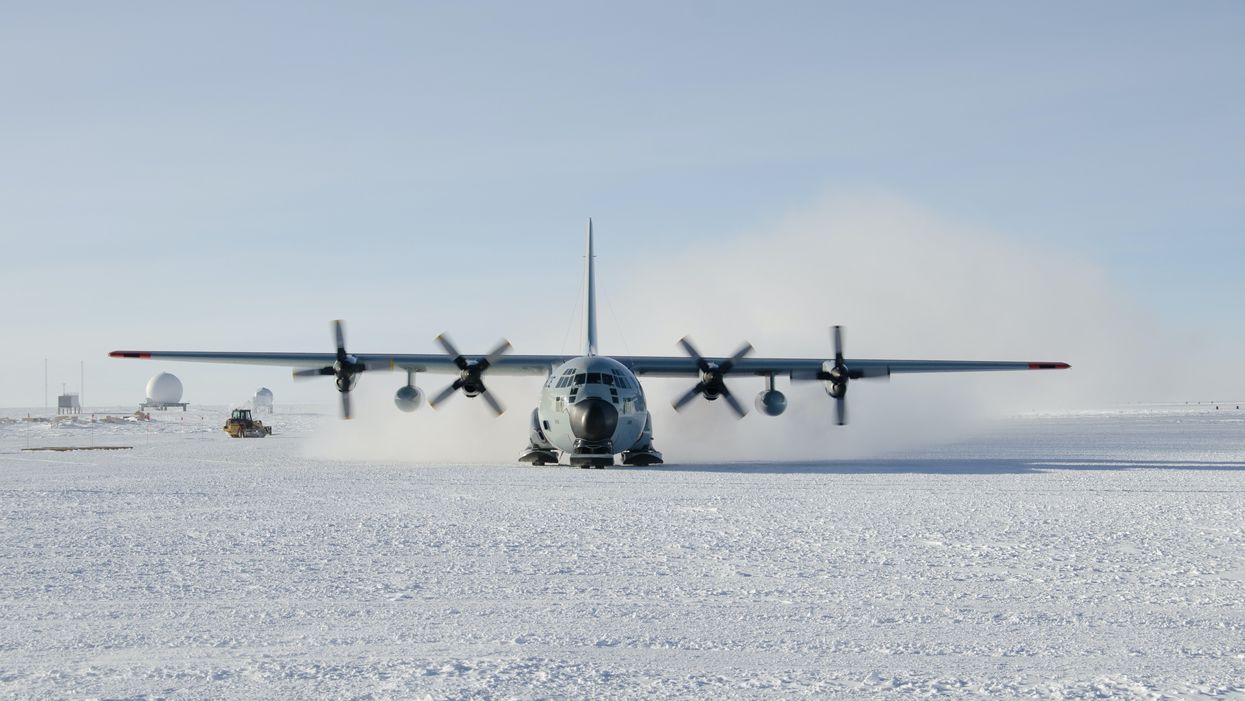New Podcast: Dr. Natasha Burgert Discusses Kids and the Delta Variant

"Making Sense of Science" is a monthly podcast that features interviews with leading medical and scientific experts about the latest developments and the big ethical and societal questions they raise. This episode is hosted by science and biotech journalist Emily Mullin, summer editor of the award-winning science outlet Leaps.org.
Listen to the episode:
Angry Citizens Pressure the World Health Organization to Fully Recognize COVID’s Airborne Spread
Aerosol scientists say that the evidence points to airborne transmission of COVID-19 "beyond any reasonable doubt."
A new citizen movement is gathering steam to try to convince the influential World Health Organization to change its messaging about how the coronavirus is transmitted.
The new petition "COVID is Airborne" (www.covidisairborne.org) started in early November and has approximately 3,000 signatures. During this particularly dangerous acceleration of the pandemic, the petition's backers allege that the WHO is failing the public with mixed messaging and thus inadvertently fueling the wildfire of transmission.
"Early on in the pandemic, [WHO Director General Dr. Tedros Adhanom Ghebreyesus] said that coronavirus is airborne, but then in March, WHO tweeted that COVID-19 is not airborne, saying that it is primarily transmitted via droplets that are too heavy to hang in the air," says petition co-creator Jessica Bassett Allen.
The organization's late March messaging, still available on social media, is a digital graphic saying, "FACT CHECK: COVID-19 is NOT Airborne".

Screenshot of WHO's Tweet from March 28, 2020 that is still published.
The petition asks for a course correct: "We, citizens of the world, request that the World Health Organization (WHO) recognize the compelling scientific evidence that SARS-CoV-2 spreads by aerosol transmission ("airborne") and urge the WHO to immediately develop and initiate clear recommendations to enable people to protect themselves."
In the vacuum of the WHO's inaction, aerosol scientists around the world scrambled to raise awareness of what they saw as a grave error.
"Almost immediately after that [March 28] announcement, we formed a group of 239 scientists from many countries and disciplines to convince them that they should acknowledge that there is airborne transmission, but we find that they are totally dead set against it," says Dr. Jose Jimenez, a chemistry professor at the University of Colorado at Boulder who has studied aerosols for 20 years. He supports the citizen petition.
In a letter to the WHO back in July, he and his colleagues wrote: "Studies by the signatories and other scientists have demonstrated beyond any reasonable doubt that viruses are released during exhalation, talking, and coughing in microdroplets small enough to remain aloft in air and pose a risk of exposure at distances beyond 1–2 m from an infected individual."
The scientists have also gone direct to the public with their findings: They published a comprehensive Google doc with detailed answers to many people's frequently asked questions about how to protect themselves, addressing issues ranging from the best masks and air filters to how to deal with passing someone outdoors and much more.
It's worth noting that the CDC has now modified its COVID FAQ to include airborne transmission as a "less common way" for the virus to spread. This update took place after the CDC stated in September that it is "possible" the virus spreads via airborne transmission – only to reverse course and remove the language from its website several days later. The CDC's website now states that some viruses, including SARS-Cov-2, "may be able to infect people who are further than 6 feet away from the person who is infected or after that person has left the space."
Basset Allen notes that after the scientists' open letter, the WHO "added ventilation to public communications about how to prevent infection, but they haven't explained why."
When contacted, a WHO representative had no specific comment and shared its late March announcement as well as its latest guidelines on transmission. In part, its statement says, "Current evidence suggests that the main way the virus spreads is by respiratory droplets among people who are in close contact with each other. Aerosol transmission can occur in specific settings, particularly in indoor, crowded and inadequately ventilated spaces, where infected person(s) spend long periods of time with others, such as restaurants, choir practices, fitness classes, nightclubs, offices and/or places of worship. More studies are underway to better understand the conditions in which aerosol transmission is occurring outside of medical facilities where specific medical procedures, called aerosol-generating procedures, are conducted."
A forceful and clear message acknowledging the evidence could make it easier to standardize school and office ventilation, petitioners argue.
Aerosol scientist Jimenez was dismayed by the WHO's response.
"The first part is an error in my opinion," he says. "Current evidence suggests that the main way the virus spreads is inhalation of aerosols.…WHO is way behind, unfortunately.
"The second part is incomplete," Jimenez continues. "Aerosol transmission can happen in those indoor crowded low-ventilation spaces. But if aerosols can accumulate under those conditions and cause infection, they must be extremely infective in close proximity when talking, since they are much more concentrated there. Just like talking close to a smoker you would inhale much more smoke (which is an aerosol) than if you were in the same room, but let's say 10 or 15 feet away."
He adds, "The WHO and others are making the assumption that if this goes through the air, then everyone who is infected is putting a lot of virus into the air at all times, but we know that's wrong: People are infectious for a short period of time before and during their symptoms. In China, they have measured how much virus comes out of people, and they see that the emission is sporadic: The virus can come out in millions of viral [particles] per hour, but it doesn't happen all the time."
The petition's co-creator, Basset Allen, says that her life experience showed her the best way to make a change. "My involvement with this effort is entirely personal," she says. "I was first introduced to HIV treatment activism as a college student and what I learned about campaigning and power has been relevant in almost every other project I've worked on since then. HIV activism taught me that everyday people can win big, life-saving policy changes if they build expertise and work strategically to push decision makers."
The petition and its advocates argue that the WHO's mixed messaging is causing real harm. For instance, a forceful and clear message acknowledging the evidence could make it easier to standardize school and office ventilation, they argue. Anecdotally, some schools have refused to install HEPA filtration in their classrooms due to a lack of specific guidance from health agencies. (Note: The CDC now recommends improving central air filtration and considering the use of portable HEPA filters in classrooms.)
As the holidays approach, a clear and unified message from all influential health agencies would also help people understand why it is still important to wear masks while physical distancing, especially indoors.
"Personally, I cheered when I heard President-Elect Biden mention ventilation upgrades in schools during the first 10 minutes of his October town hall event, and again in the second debate," Basset Allen says. "Unfortunately, we're still more than two months away from the Biden administration taking over the U.S. COVID-19 response and we have to do absolutely everything we can right now to save as many lives as possible. Increasing awareness of airborne transmission and mitigation strategies can't wait. WHO can use its power to help close that gap, here and around the world."
Novel Technologies Could Make Coronavirus Vaccines More Stable for Worldwide Shipping
The vaccine from Pfizer will need to be stored at minus 70 degrees Celsius for worldwide distribution.
Ssendi Bosco has long known to fear the rainy season. As deputy health officer of Mubende District, a region in Central Uganda, she is only too aware of the threat that heavy storms can pose to her area's fragile healthcare facilities.
In early October, persistent rain overwhelmed the power generator that supplies electricity to most of the region, causing a blackout for three weeks. The result was that most of Mubende's vaccine supplies against diseases such as tuberculosis, diphtheria, and polio went to waste. "The vaccines need to be constantly refrigerated, so the generator failing means that most of them are now unusable," she says.
This week, the global fight against the coronavirus pandemic received a major boost when Pfizer and their German partner BioNTech released interim results showing that their vaccine has proved more than 90 percent effective at preventing participants in their clinical trial from getting COVID-19.
But while Pfizer has already signed deals to supply the vaccine to the U.S., U.K., Canada, Japan and the European Union, Mubende's recent plight provides an indication of the challenges that distributors will face when attempting to ship a coronavirus vaccine around the globe, particularly to low-income nations.
Experts have estimated that somewhere between 12 billion and 15 billion doses will be needed to immunize the world's population against COVID-19, a staggering scale, and one that has never been attempted before. "The logistics of distributing COVID-19 vaccines have been described as one of the biggest challenges in the history of mankind," says Göran Conradson, managing director of Swedish vaccine manufacturer Ziccum.
But even these estimates do not take into account the potential for vaccine spoilage. Every year, the World Health Organization estimates that over half of the world's vaccines end up being wasted. This happens because vaccines are fragile products. From the moment they are made, to the moment they are administered, they have to be kept within a tightly controlled temperature range. Throughout the entire supply chain – transportation to an airport, the flight to another country, unloaded, distribution via trucks to healthcare facilities, and storage – they must be refrigerated at all times. This is known as the cold chain, and one tiny slip along the way means the vaccines are ruined.
"It's a chain, and any chain is only as strong as its weakest link," says Asel Sartbaeva, a chemist working on vaccine technologies at the University of Bath in the U.K.
For COVID-19, the challenge is even greater because some of the leading vaccine candidates need to be kept at ultracold temperatures. Pfizer's vaccine, for example, must be kept at -70 degrees Celsius, the kind of freezer capabilities rarely found outsides of specialized laboratories. Transporting such a vaccine across North America and Europe will be difficult enough, but supplying it to some of the world's poorest nations in Asia, Africa and South America -- where only 10 percent of healthcare facilities have reliable electricity -- might appear virtually impossible.
But technology may be able to come to the rescue.
Making Vaccines Less Fragile
Just as the world's pharmaceutical companies have been racing against the clock to develop viable COVID-19 vaccine candidates, scientists around the globe have been hastily developing new technologies to try and make vaccines less fragile. Some approaches involve various chemicals that can be added to the vaccine to make them far more resilient to temperature fluctuations during transit, while others focus on insulated storage units that can maintain the vaccine at a certain temperature even if there is a power outage.
Some of these concepts have already been considered for several years, but before COVID-19 there was less of a commercial incentive to bring them to market. "We never felt that there is a need for an investment in this area," explains Sam Kosari, a pharmacist at the University of Canberra, who researches the vaccine cold chain. "Some technologies were developed then to assist with vaccine transport in Africa during Ebola, but since that outbreak was contained, there hasn't been any serious initiative or reward to develop this technology further."
In her laboratory at the University of Bath, Sartbaeva is using silica - the main constituent of sand – to encase the molecular components within a vaccine. Conventional vaccines typically contain protein targets from the virus, which the immune system learns to recognize. However, when they are exposed to temperature changes, these protein structures degrade, and lose their shape, making the vaccine useless. Sartbaeva compares this to how an egg changes its shape and consistency when it is boiled.
When silica is added to a vaccine, it molds to each protein, forming little protective cages around them, and thus preventing them from being affected by temperature changes. "The whole idea is that if we can create a shell around each protein, we can protect it from physically unravelling which is what causes the deactivation of the vaccine," she says.
Other scientists are exploring similar methods of making vaccines more resilient. Researchers at the Jenner Institute at the University of Oxford recently conducted a clinical trial in which they added carbohydrates to a dengue vaccine, to assess whether it became easier to transport.
Both research groups are now hoping to collaborate with the COVID-19 vaccine candidates being developed by AstraZeneca and Imperial College, assuming they become available in 2021.
"It's good we're all working on this big problem, as different methods could work better for different types of COVID-19 vaccines," says Sartbaeva. "I think it will be needed."
Next-Generation Vaccine Technology
While these different technologies could be utilized to try and protect the first wave of COVID-19 vaccines, efforts are also underway to develop completely new methods of vaccination. Much of this research is still in its earliest stages, but it could yield a second generation of COVID-19 vaccine candidates in 2022 and beyond.
"After the first round of mass vaccination, we could well observe regional outbreaks of the disease appearing from time to time in the coming years," says Kosari. "This is the time where new types of vaccines could be helpful."
One novel method being explored by Ziccum and others is dry powder vaccines. The idea is to spray dry the final vaccine into a powder form, where it is more easily preserved and does not require any special cooling while being transported or stored. People then receive the vaccine by inhaling it, rather than having it injected into their bloodstream.
Conradson explains that the concept of dry powder vaccines works on the same principle as dried food products. Because there is no water involved, the vaccine's components are far less affected by temperature changes. "It is actually the water that leads to the destruction of potency of a vaccine when it gets heated," he says. "We're looking to develop a dry powder vaccine for COVID-19 but this will be a second-generation vaccine. At the moment there are more than 200 first-generation candidates, all of which are using conventional technologies due to the timeframe pressures, which I think was the correct decision."
Dry powder COVID-19 vaccines could also be combined with microneedle patches, to allow people to self-administer the vaccine themselves in their own home. Microneedles are miniature needles – measured in millionths of a meter – which are designed to deliver medicines through the skin with minimal pain. So far, they have been used mainly in cosmetic products, but many scientists are working to use them to deliver drugs or vaccines.
At Georgia Institute of Technology in Atlanta, Mark Prausnitz is leading a couple of projects looking at incorporating COVID-19 vaccines into microneedle patches with the hope of running some early-stage clinical trials over the next couple of years. "The advantage is that they maintain the vaccine in a stable, dry state until it dissolves in the skin," he explains.
Prausnitz and others believe that once the first generation of COVID-19 vaccines become available, biotech and pharmaceutical companies will show more interest in adapting their products so they can be used in a dried form or with a microneedle patch. "There is so much pressure to get the COVID vaccine out that right now, vaccine developers are not interested in incorporating a novel delivery method," he says. "That will have to come later, once the pressure is lessened."
The Struggle of Low-Income Nations
For low-income nations, time will only tell whether technological advancements can enable them to access the first wave of licensed COVID-19 vaccines. But reports already suggest that they are in danger of becoming an afterthought in the race to procure vaccine supplies.
While initiatives such as COVAX are attempting to make sure that vaccine access is equitable, high and middle-income countries have already inked deals to secure 3.8 billion doses, with options for another 5 billion. One particularly sobering study by the Duke Global Health Innovation Center has suggested that such hoarding means many low-income nations may not receive a vaccine until 2024.
For Bosco and the residents of Mubende District in Uganda, all they can do is wait. In the meantime, there is a more pressing problem: fixing their generators. "We hope that we can receive a vaccine," she says. "But the biggest problem will be finding ways to safely store it. Right now we cannot keep any medicines or vaccines in the conditions they need, because we don't have the funds to repair our power generators."

